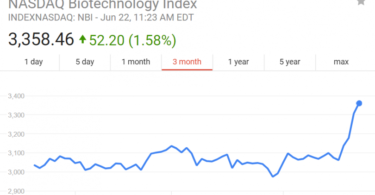Beauty is in the eye of the beholder. You could apply the same premise to how high a dividend yield must be for investors to consider it an ultra-high yield. There's no hard-and-fast definition.
Some might put the threshold at 7%. Others might prefer a slightly lower or higher level. However, I suspect nearly everyone would agree that a dividend yield of 10% or more is ultra-high.
There's no question whatsoever that Ares Capital (ARCC) deserves the label as an ultra-high-yield dividend stock. And it could be the best one on the market right now.
Taking care of business
Ares Capital ranks as the largest publicly traded business development company (BDC). If you're not familiar with BDCs, they provide financing to small- to medium-sized businesses. Ares Capital focuses on the middle market.
Many ultra-high-yield dividend stocks deliver subpar total returns over the long term. That isn't the case with Ares Capital. Since its initial public offering in 2004, the stock has generated a total return of nearly 740%. The S&P 500‘s total return during the same period was around 420%. And BDCs, as a group, produced a much lower average total return than that.
Sure, Ares Capital's share price is down a little year to date. That's in large part the result of the turmoil in the banking industry, which weighed on the broader financial services sector. However, the banking crisis should actually be good news for Ares Capital by driving more business its way.
The company's stock also slipped a bit this week after missing the consensus core earnings estimate for the first quarter of 2023. The miss wasn't a huge one: Ares reported core earnings per share of $0.57, while analysts were looking for $0.59 per share.
Importantly, Ares Capital continues to grow. The company's core earnings per share jumped nearly 36% year over year. Its net income per share, based on generally accepted accounting principles (GAAP), increased more than 18% year over year.
A sky-high dividend yield that's reliable
Investors have a lot to like about Ares Capital's dividend, especially with the yield at a sky-high level of 10.7%. However, the obvious question with most ultra-high-yield dividend stocks is: How sustainable is the dividend?
Ares' dividend appears to be quite reliable. The BDC boasts more than 13 years of stable or growing dividends. Its core and GAAP earnings in Q1 were well above the dividend payout of $0.48 per share.
Perhaps the most reassuring thing about Ares Capital's ability to fund its dividend is its diversified portfolio. It has 466 portfolio companies spread across 25 different industries. The company has little-to-no exposure to highly inflation-sensitive sectors. Its portfolio is also skewed toward larger middle-market companies, which have a lower risk profile than smaller businesses.
Ares Capital isn't leveraged to the hilt, either. The company deleveraged in Q1 somewhat, ending the quarter with a low net debt-to-equity ratio below 1.1.
Promising prospects
Many of the ultra-high-yield dividend stocks on the market face considerable uncertainty about their businesses. Not Ares Capital. Co-President Mitchell Goldstein said in the company's Q1 call, “As a result of the constrained capital environment, the competitive dynamics and risk-reward environment continues to be as attractive as we have seen in quite some time.”
As a result of the banking crisis, the access to capital has tightened. This makes the direct lending and other financing solutions that Ares Capital offers more attractive.
The numbers demonstrate this is the case. Ares Capital CEO Kipp DeVeer noted in the Q1 call that the BDC has “already seen a 14% quarter-over-quarter increase in the number of deals we evaluated during Q1.”
In addition to these promising prospects, Ares Capital's valuation looks appealing. Shares currently trade at around 7.7 times expected earnings.
Is Ares Capital the best ultra-high-yield dividend stock on the market right now? Different investors will probably have different opinions. However, Ares Capital seems to have a pretty strong claim to the title.
Originally published on Fool.com
Keith Speights has no position in any of the stocks mentioned. The Motley Fool has no position in any of the stocks mentioned. The Motley Fool has a disclosure policy.






